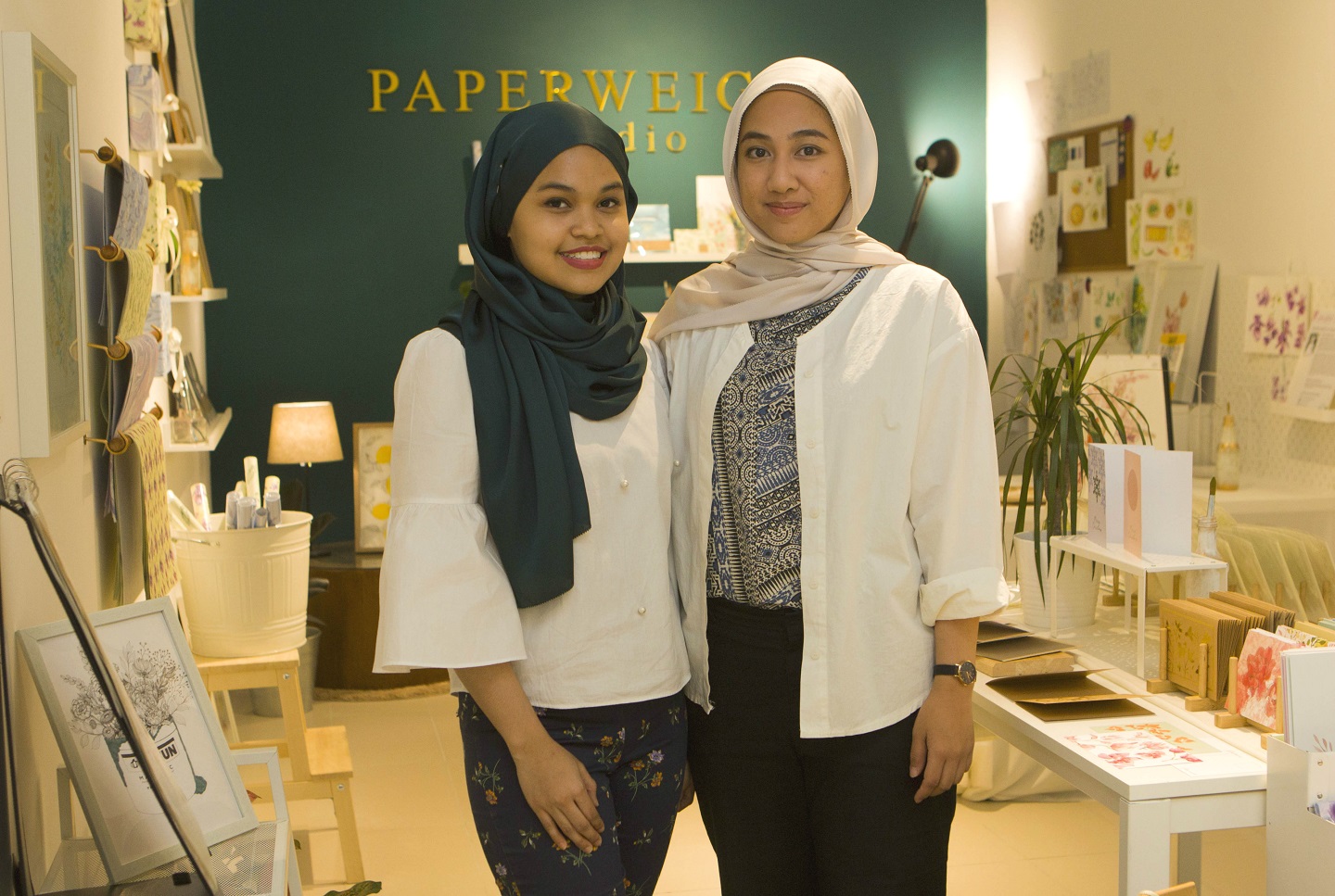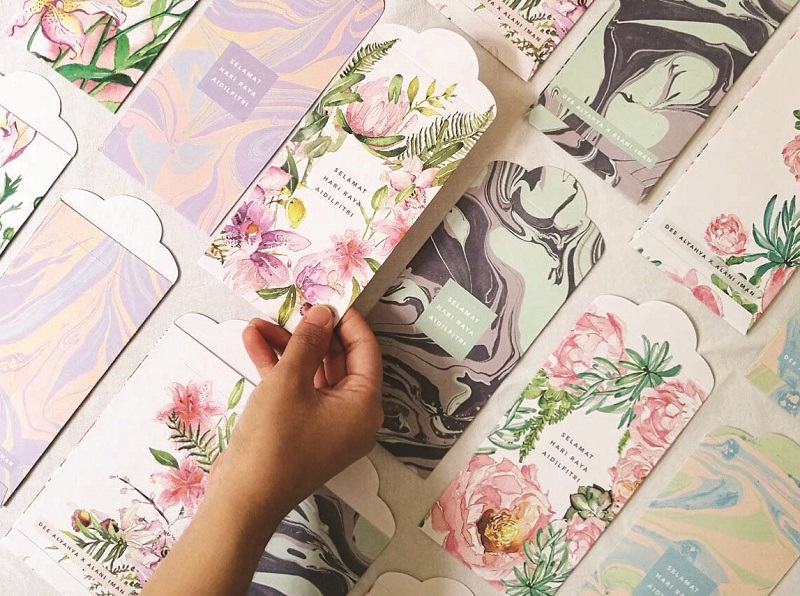
Founders Dee Alyahya (left) and Alani Iman (Photo: Patrick Goh/The Edge)
For stationery addicts like myself, self-control flies out the window when you walk into havens like Cziplee and Stickeriffic. We find ourselves stepping out of these stores with stacks of new paper, pens and knick-knacks that we never knew we needed. For Alani Iman and Dee Alyahya, this obsession evolved into Paperweight Studio, a company that specialises in bespoke packaging and paper stationery.
Alani was working at a small independent art gallery when she met Dee, one of the exhibiting artists who was working for an architectural firm at the time. “I had thought about doing stationery for quite a while, it was just a matter of finding someone I could do it with,” says Dee. After getting to know each other, Dee approached Alani with her business idea.
Their first project was artistically designed angpow packets that came in six different designs for Hari Raya Aidilfitri last year. The initial batch was 3,000 packets but the demand skyrocketed well beyond their supply. “We just made them and sold them on Twitter, and it went viral. We sold almost 8,000 packets — it was crazy,” says Alani. This incredible feedback prompted the women to quit their jobs and make Paperweight Studio a full-time endeavour.

Since then, it has produced greeting cards, wrapping paper, notebooks, files and much more. What makes its stationery special is that all the items feature illustrations and watercolour paintings by Alani and Dee. “Our designs focus on local botanicals and patterns. We definitely take inspiration from Malaysian culture,” says Alani, adding that they could not find other stationery products with local flora and fauna as a design theme.
Their earliest commission was to design the packaging for a local skincare company that specifically wanted bunga kantan, or torch ginger flower, as part of the design. Today, their repertoire has expanded to include bespoke stationery projects for weddings and events. The duo is currently working on custom wrapping paper for a tea business and floral head scarves for a hijab company.
Dee and Alani each have their own, very distinctive design style, which broadens the possibilities for their work. “Whenever we have projects like weddings, clients can choose between two mediums. If they opt for something more illustrative, I pass it to Alani and if someone wants watercolours, then I can do it,” says Dee.

One of the initial hurdles they faced was finding the right printers. Through trial and error, they have found the right people for each job. “There are hundreds of print shops in Pudu and we went through all of them. For every product we make, we use not just one supplier. For hot stamping we go to this person, for die-cutting we go to another place, for paper we go to a paper merchant and so on,” says Alani.
Both of them are in their mid-twenties and although their youth gives them the energy and tenacity to drive forward, it can make working with experienced suppliers a bit tricky. “People see us and they think, ‘Who are these two children?’ You have to have a tough look and be assertive. It’s definitely a male-dominated business.”
Alani and Dee have a lot of ideas for new products but the final decisions are made carefully, with the help of feedback they get from bazaars. “We produce based on recommendations. It’s based on demand and it’s what people want,” says Dee. Paperweight Studio’s stationery can currently be found at Cziplee and Buah Tangan, but the goal is a bricks-and-mortar store of its own. Although Dee and Alani are taking things slowly for now, they have a very specific vision of their shop — natural lighting is key and enough space for Dee to conduct her watercolour workshops, too.
This article first appeared on Dec 17, 2018 in The Edge Malaysia.


